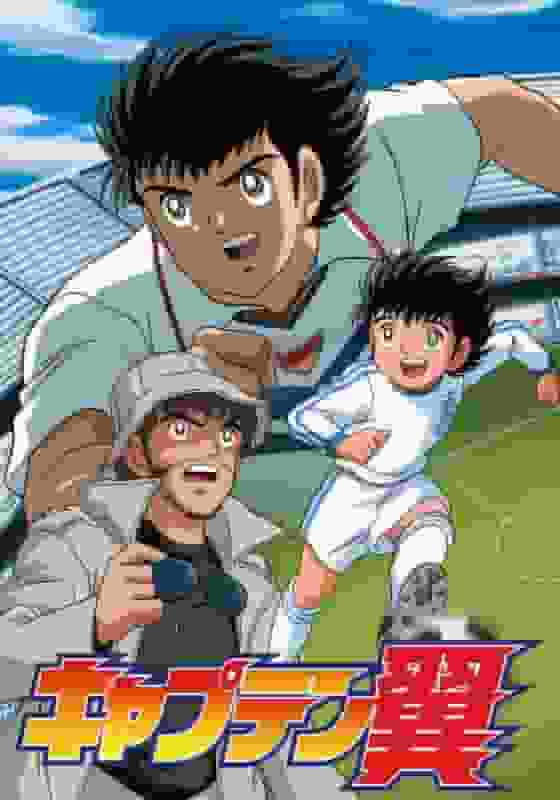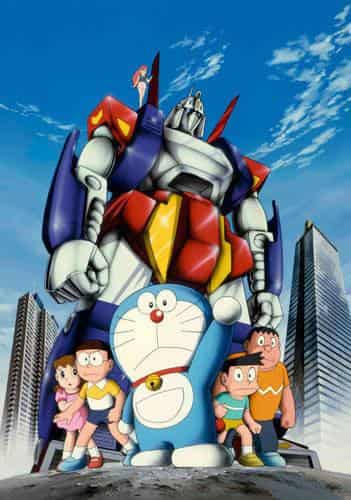The appeal and evaluation of Captain Tsubasa, the third series (2001): A monumental soccer anime

Captain Tsubasa - Captain Tsubasa - Comprehensive evaluation and recommendation■Overview of the workCaptain Tsubasa is a TV anime series based on the popular manga Captain Tsubasa by Yoichi Takahashi, which aired on TV Tokyo and other networks from October 7, 2001 to October 6, 2002. The 52-episode series follows the protagonist Tsubasa Ozora, who becomes a superstar in Brazil and aims to further his dream of making it to Europe. Animation was produced by Madhouse and Group TAC, and the series was directed by Gisaburo Sugii. ■ StoryOzora Tsubasa, who became a superstar in Brazil, now aims to advance to Europe. As he faces the thunderous cheers of fans in a foreign land and takes on an important game where he cannot afford to lose, Tsubasa's mind is brought back to his childhood, the starting point of his soccer career. His passion for soccer, wanting to win games and score goals, has not changed one bit from his childhood to when he became a professional. Meeting Wakabayashi, Hinata, Misaki, and Roberto changed soccer for Tsubasa from being just a sport to something he should bet his life on. This series depicts Tsubasa's growth and the bonds he forms with his teammates. ■ CharactersTsubasa Ozora is a true soccer boy who went from Nankatsu Elementary School to Nankatsu FC and then Nankatsu Junior High School, playing as a midfielder. He has a healthy and positive personality, and it seems like he grew up with the ball. Genzo Wakabayashi is a strict boy who went from Shutetsu Elementary School to Nankatsu FC, aiming to be the best goalkeeper in the world. Kojiro Hinata is a tenacious player who went from Meiwa FC to Toho Gakuen Junior High School and Toho Gakuen High School, aiming to become a professional as a forward to support his family. Taro Misaki is a kind boy who went from Meiwa FC to Nankatsu Elementary School, Nankatsu FC and Nankatsu Junior High School, supporting the team's ace as a midfielder. Other unique characters such as Jun Misugi, Ken Wakashimazu, Sanae Nakazawa, Roberto Hongo and Ryo Ishizaki add excitement to the story. ■ Production staffThe original work was written by Yoichi Takahashi, the director was Gisaburo Sugii, the chief director was Isamu Imakake, the character designer and chief animation director was Minoru Maeda, the chief animation director was Marisuke Eguchi, the art director was Katsuyoshi Kanemura, the director of photography was Shinichiro Tate, the series composition was Kazuhiko Souma, the sound director was Fusanobu Fujiyama, and the music was by Fuminori Iwasaki and Akifumi Tada. The animation was produced by Group TAC, with production cooperation from Avex Mode, and production was handled by TV Tokyo, Dentsu, and Madhouse. ■CastTsubasa Ozora (young man) is played by Tomokazu Seki, Kojiro Hinata (young man) is played by Takehito Koyasu, Genzo Wakabayashi is played by Kenichi Suzumura, Taro Misaki (young man) is played by Kosuke Toriumi, Ken Wakashimazu is played by Kentaro Ito, Jun Misugi (young man) is played by Kazunari Miyazaki, Sanae Nakazawa is played by Atsuko Enomoto, Shingo Aoi is played by Shoutarou Morikubo, Pinto is played by Akari Hibino, Roberto Hongo is played by Mitsuru Miyamoto, Munemasa Katagiri is played by Ryutaro Okiayu, Matsumoto is played by Atsuko Tanaka, and Ryo Ishizaki is played by Takayuki Miyamoto. Norei and Matsuyama Hikaru were played by Ishida Akira, Okawa Manabu was played by Nagasawa Miki, Tsujito Hiroshi was played by Takatsuka Masaya, Sawada Takeshi (young man) was played by Kiyasu Kohei, Villem was played by Yamaguchi Kappei, Director Louvois was played by Inoue Kazuhiko, Ozora Tsubasa (boy) was played by Inoue Kikuko, Hinata Kojiro (boy) was played by Matsumoto Rika, Misaki Taro (boy) was played by Yukino Satsuki, Misugi Jun (boy) was played by Orikasa Ai, and Sawada Takeshi (boy) was played by Takeuchi Junko. ■Broadcast information"Captain Tsubasa" was broadcast on TV Tokyo, TV Hokkaido, TV Aichi, TV Osaka, TV Setouchi, and TVQ Kyushu Broadcasting every Sunday from October 7, 2001 to October 6, 2002 from 17:20 to 17:50. There are 52 episodes in total, each 30 minutes long. ■ Theme songs and musicThe opening theme is "Dragon Screamer" by DA PUMP from episodes 1 to 35, and "Our Relation" by Eriko Imai from episodes 36 to 52. The ending theme is "Feel so right" by MAX from episodes 1 to 13, "Katsu" by London Boots 1-2-gou from episodes 14 to 26, "Keep on going" by Atsuko Enomoto from episodes 27 to 39, and "BREAK OFF!!" by DASEIN from episodes 40 to 52. These songs are important elements that liven up the atmosphere of each episode. ■ Evaluation and recommendation"Captain Tsubasa" is a story that depicts youth, friendship, hard work and growth through the sport of soccer. The passion and emotion of the original work is faithfully reproduced in the anime, leaving a strong impression on viewers. In particular, the story of Ozora Tsubasa's growth and the bonds he forms with his teammates have captured the hearts of many people. The animation quality is also high, and the intensity of the match scenes and the detailed expressions of the characters have been praised. This work is recommended not only for soccer fans, but also for those who like youth dramas and sports anime. In particular, for those who are familiar with the original work, it is a work filled with nostalgia and new discoveries. In addition, it is a work that can be enjoyed by a wide range of age groups, from children to adults, and is suitable for watching with the whole family. Furthermore, "Captain Tsubasa" is a work that has a lot to teach young people who want to become soccer players, as it describes soccer techniques and tactics in detail. It allows them to gain a deeper understanding of the essence of sports, such as the tension of a match, the determination to win, and the importance of bonds with teammates. This series has been widely accepted by fans of the original work as well as new viewers, and is a work that inspires and inspires many people. Please watch it at least once and experience the passionate emotions and emotions. ■SubtitleThe subtitles for each episode are as follows:
■ Related worksThere are many other works in the "Captain Tsubasa" series. The original manga is currently being serialized in "Weekly Young Jump" and was previously made into an anime series called "Captain Tsubasa" from 1983 to 1986. It was also made into an anime again in 2018, conveying its appeal to a new generation. By enjoying these works together, you can gain a deeper understanding of the world of "Captain Tsubasa." Conclusion"Captain Tsubasa" is a moving work that depicts youth, friendship, effort and growth through the sport of soccer. The passion and emotion of the original work is faithfully reproduced in the anime, leaving a strong impression on viewers. In particular, the story of Ozora Tsubasa's growth and the bond with his teammates have captured the hearts of many people. The animation quality is also high, and the intensity of the match scenes and the detailed expressions of the characters have been praised. This work is recommended not only for soccer fans, but also for those who like youth dramas and sports anime. Please watch it at least once and experience the passion and emotion. |
<<: Fierce Battle! The appeal and reviews of CRASH GEAR TURBO: The hot-blooded battle never stops!
Recommend
It is revealed that the live-action Japanese drama "Judgment Death" is in development, starring Kimura Takuya
According to Kotaku, a live-action series of &quo...
The latest trailer of the animation version of the SF masterpiece "7SEEDS" is released
The animated version of the popular science ficti...
The appeal and reviews of Slime Adventure: The Sea, Yeaaaa
The appeal and reviews of Slime Adventure: The Se...
The appeal and evaluation of "This is a UFO! Flying Saucer": A must-read review for anime fans
"This is a UFO! Flying Saucer" - A shor...
Goblin Island: A thorough review of the excitement of adventure and battle
"Exploring Goblin Island": The appeal a...
The appeal and reviews of "Detective Opera Milky Holmes TD": New developments that fans must see
Detective Opera Milky Holmes TD - Detective Opera...
Space Adventure Cobra: Explore the fascination and adventure of space
Space Adventure Cobra: The ultimate in space fasc...
The official Chinese trailer of "Shazam!" is released! A hilarious alternative hero is coming
Today, the official trailer of DC Films' &quo...
Hong Kong actress Anita Mui, who starred in "A Chinese Odyssey", passed away in the early hours of the morning at the age of 55
According to domestic media reports, in the early...
The total sales of One Piece single volumes exceeded 460 million. The latest 95th volume will be released on December 28
How popular is the anime "One Piece"? L...
Oriental DreamWorks announces three animation projects: ancient style + science fiction + fantasy
Today (December 1), Oriental DreamWorks announced...
Butchy in the City: A realistic portrayal of city life and fascinating characters
City Butchy - Tokayno Butchy overview "Tokai...
Ridley Scott's Gladiator 2 releases first trailer, to be released on November 22
"Gladiator 2" first released the traile...
The Walking Dead Season 9 New Poster Released, The Whisperers Female Leader Appears
Today, the new poster for the second half of the ...
Ninjutsu Hi no Tama Kozou - Edo Volume: Exploring the fusion of tradition and innovation
"Ninjutsu Kanotama Kozo: Edo Chapter": ...









